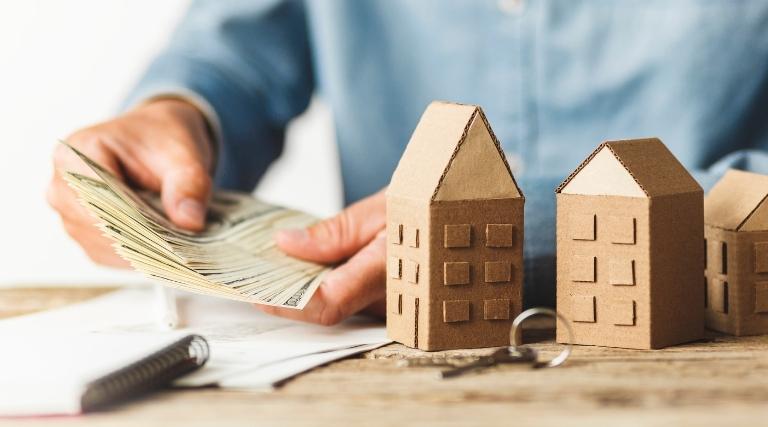Don’t expect to become an expert in property investing immediately if you’re just starting. Buying and selling properties can bring you money, but it requires knowledge, perseverance, and skill. Knowing some of the common mistakes that people make when they first start investing in real estate can also help you avoid making them yourself.
1. Not Creating a Plan

The first step is to create a plan. The very last thing you want to do is purchase a home without understanding how it will result in gains or income. It might be challenging to avoid being caught up in the buying frenzy during a hot real estate market. But you need to stand back and make a plan, including what to do if the market declines or your predictions prove to be incorrect.
You must choose a financial strategy before applying for a mortgage or putting down money. What kind of home are you seeking? For instance, single-family or multifamily real estate are both options. Vacation homes? Office, commercial, or mixed-use structures?
2. Poor Research Practices
Most individuals examine various models, ask a lot of questions, and try to decide whether the purchase they are considering is worth the money before they buy a car or a television set. Even more thorough due diligence should be performed before buying a home.
All kinds of real estate buyers, whether private homeowners, prospective landlords, a flipper, or land developers, must take research into account.
You should enquire thoroughly about the home as well as the neighborhood in which it is situated. What use is a gorgeous house if a college fraternity notorious for its all-night keg partying is right around the corner? Unless, of course, you’re aiming for renters who are students.
The questions that prospective investors should ask about the properties they are thinking about include the ones listed below:
- Is there a business nearby, or will there be a significant building soon?
- What are the city’s plans for the neighborhood and the ones around it?
- Has the neighborhood undergone significant changes in terms of its population makeup or type of household?
- Is the home situated in a flood plain or an unfavorable region, such as one with radon or termite issues?
- Do you need to take care of the foundation or permit issues with the house?
- What significant items, like appliances, will need to be replaced in the home?
- What is the main justification for selling the house?
- When and how much did the home’s previous owners pay for it?
- Are there any trouble spots in the town if you’re moving there?
- How close are important facilities like supermarkets, hospitals, and big employers?
3. Acting solely on your own

Many purchasers believe they are either experts or are capable of concluding a real estate transaction by themselves. Even though you may have completed multiple agreements in the past that went successfully, things might not go as smoothly in a down market, and there is no one you can turn to if you want to remedy a real estate deal that isn’t going well.
Real estate buyers should use all available tools and establish friends with professionals who can guide them in the proper direction. A list of potential experts should at the very least contain a knowledgeable home inspector, a handyman, an excellent lawyer, and an insurance agent.
These professionals have to be able to inform the investor of any issues with the house or neighborhood. Or, in the case of a lawyer, they could be able to alert you to any title flaws or easements that might one day come back to bother you.
4. Ignoring Local Real Estate
To make purchases that are likely to help you make a profit, you must get knowledgeable about the neighborhood market. Drilling deeper into inventory levels, property development values, land values, supply and demand difficulties, and more is required. It will be easier for you to decide whether or not to purchase a specific house if you get a feel for these factors.
5. Ignoring the needs of tenants

If you plan to buy a rental property, consider the types of tenants you might attract, such as young families, singles, or college students. Families will need low crime rates and reputable schools, while singles may desire easy access to public transportation and a lively nightlife. How close is the ocean or other nearby attractions if your intended purchase is a holiday rental? To the kind of tenants who are most likely to rent in that region, try to match your real estate investment.
6. Receiving Subpar Financing
There are still many exotic mortgage alternatives available, and the goal of these mortgages is to enable purchasers to purchase particular homes that they might not otherwise be able to afford using a more traditional, 30-year mortgage deal.
Unfortunately, a lot of buyers who obtain interest-only loans or adjustable-rate mortgages (ARMs) eventually pay the price when interest rates increase. Make sure that’s not you. Make sure you have the resources to continue making the payments (if interest rates rise) or a backup plan to switch to a more traditional fixed-rate mortgage in the future.
To prevent these issues, it is ideal that you start with a fixed-rate mortgage or pay cash for your property investment.
7. Paying too much

This matter has a tenuous connection to the one about conducting research. Finding the ideal home may be a time-consuming and tedious process. Potential buyers are naturally eager for the seller to accept their offer when they discover houses that fit their needs and preferences.
The issue with worried purchasers is that they frequently overbid on properties. A cascade of issues may result from making an excessive offer on a home. Overextending yourself and taking on excessive debt could result in greater payments than you can handle. As a result, it can take a while before you get your money back for wealth creation.
Start by looking for comparable properties in the neighborhood that have recently sold to see whether your dream real estate investment is priced too much. Given their access to a database of multiple-listing real estate agents, real estate brokers should be able to offer this information with relative ease.
However, as a backup, you can simply check the costs of comparable houses on real estate databases or even in your neighborhood newspaper. Logic implies that you should strive to make your bids comparable to other home sales in the neighborhood unless the property has special qualities that are expected to increase its value over time.
There will always be different chances. The chances are to your advantage that another house will exist that will match your needs even if the negotiation process drags or fails. Just be patient as you conduct your search.
8. Failure to Account for Costs
Every homeowner can attest that having a home involves much more than just paying the mortgage. Real estate buyers are not exempt from this rule, of course. In addition to the price of putting in a new roof or making structural alterations to the house, there are expenses related to maintaining the yard and making sure that appliances (such as the oven, washer, dryer, refrigerator, and furnace) are in good operating order. Property taxes and insurance must also be considered.
Before actually placing a bid on a house, the best advice is to compile a list of all the estimated monthly expenses related to operating and maintaining it. If you intend to rent out the property, you may determine the return on investment (ROI) for the rental after adding up all of the statistics and factoring in the monthly rent to have a clearer indication of whether the income will cover your mortgage and maintenance expenses. You can use this to determine if you can afford the home.
For people who flip houses, figuring out costs before property investment is also essential. That’s because the time it takes to buy, renovate, and resell the house directly affects their revenues.
Investors should create this list in any event. They should also pay close attention to any short-term financing fees, prepayment fines, and cancellation fees (for utilities or insurance) that might be incurred if the house is quickly sold.
